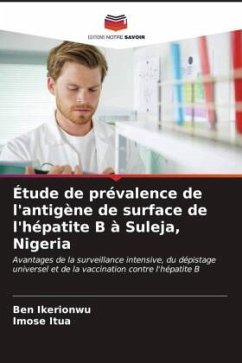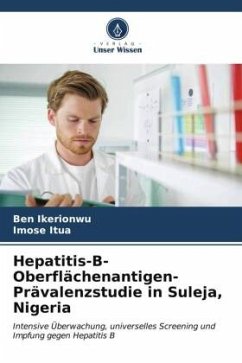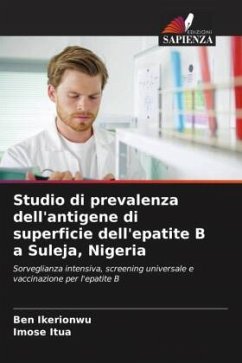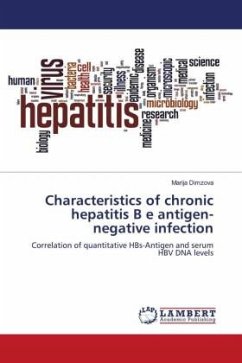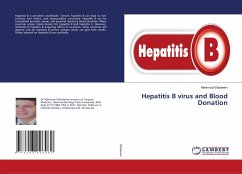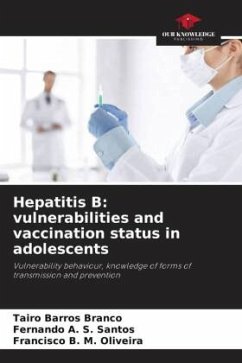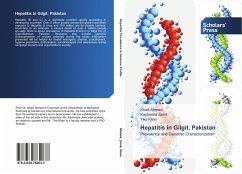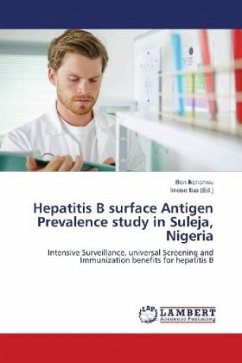
Hepatitis B surface Antigen Prevalence study in Suleja, Nigeria
Intensive Surveillance, universal Screening and Immunization benefits for hepatitis B
Herausgegeben: Itua, Imose
Versandkostenfrei!
Versandfertig in 6-10 Tagen
18,99 €
inkl. MwSt.

PAYBACK Punkte
9 °P sammeln!
Hepatitis B(HB) is a public health burden globally, developing nations including Nigeria account more for its sequelae: liver cirrhosis and cancer. Its hyperendemicity in Nigeria is also acknowledged as studies in urban areas show; 44.7% in rural areas in Borno, Nigeria has been reported. Despite the introduction of infant vaccination in 2005 in Nigeria, HB surface antigen-positivity(HBsAg+) remains a threat in some areas, including the target community. Blood screening is inadequately done irrespective of donor-status, due to lack of test resources or poor practices. People freely take treatm...
Hepatitis B(HB) is a public health burden globally, developing nations including Nigeria account more for its sequelae: liver cirrhosis and cancer. Its hyperendemicity in Nigeria is also acknowledged as studies in urban areas show; 44.7% in rural areas in Borno, Nigeria has been reported. Despite the introduction of infant vaccination in 2005 in Nigeria, HB surface antigen-positivity(HBsAg+) remains a threat in some areas, including the target community. Blood screening is inadequately done irrespective of donor-status, due to lack of test resources or poor practices. People freely take treatment/injections at unauthorized "drug" shops and engage in lifestyles that promote risks of HB spread. No acknowledged standardized surveillance system for collecting/reporting HBsAg+ cases in the study area for effective use by the state and local health authorities to plan preventive intervention programs. This work showed the burden of HB in the target population, highlighting the need to heighten surveillance system, awareness, mass screening and immunization to limit spread, disability and deaths from the associated liver complications of Hepatitis B.



